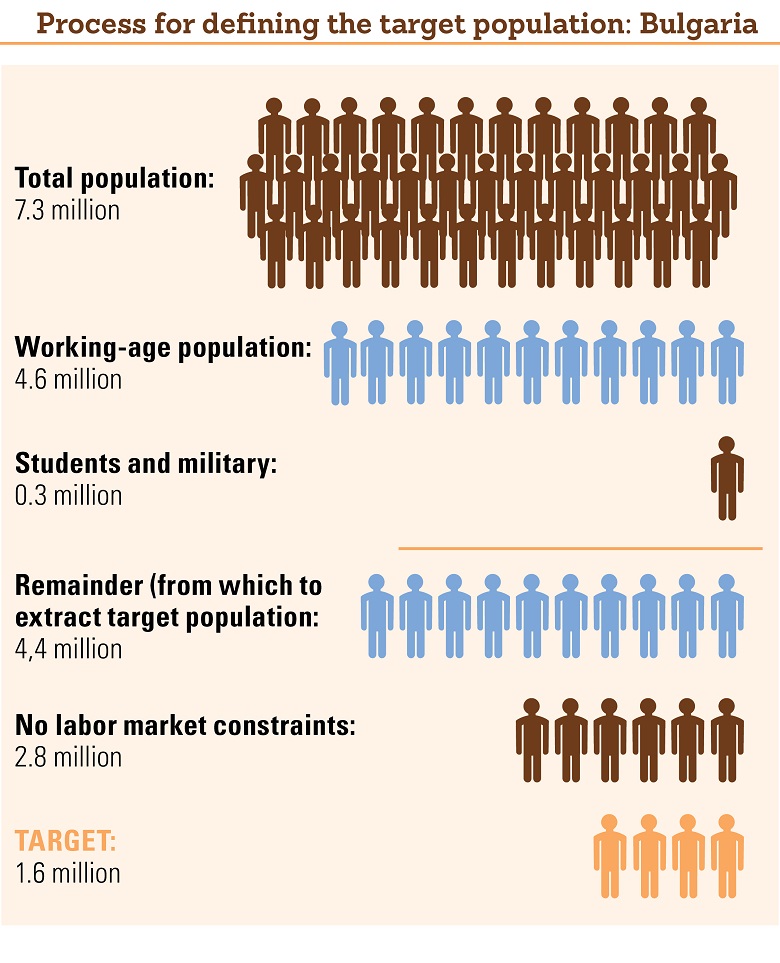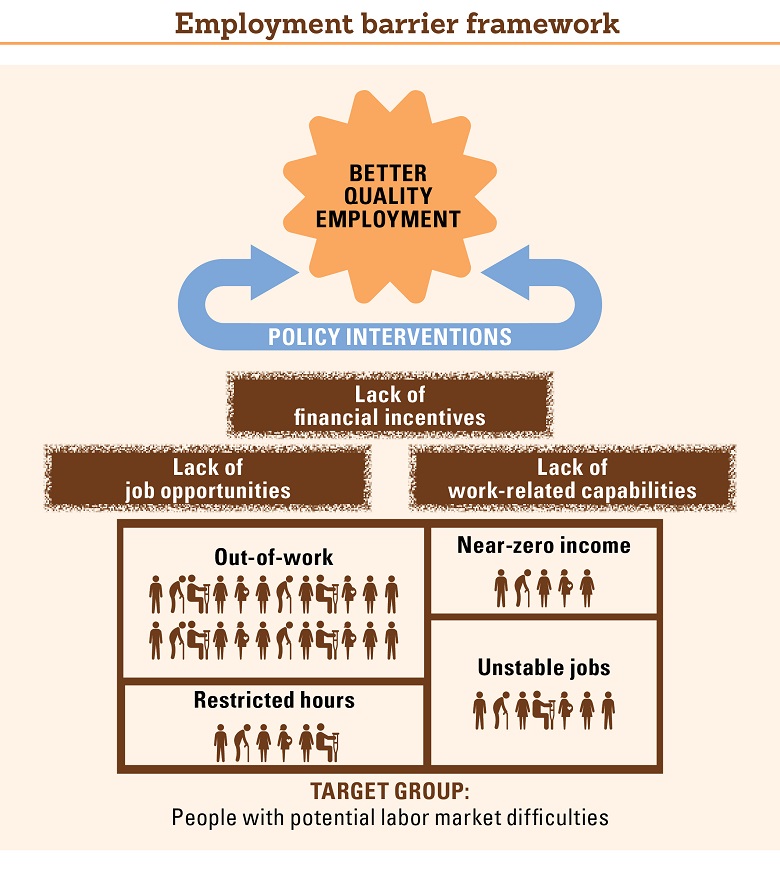Overview
People who are unemployed, inactive, or precariously employed can be characterized as "labor market vulnerable". These individuals are often very different, having experienced diverse life situations. Unemployed people can include middle-aged early retirees, or young adults who are neither in school nor in a job. Some people may take temporary or precarious employment, work a reduced number of hours, or earn very low incomes despite being engaged in full-time work.
To design effective policies that promote labor market inclusion, governments need to better understand what barriers keep the labor market vulnerable out of work or in unstable employment. Only by recognizing and understanding the range of barriers to employment can labor market vulnerability be meaningfully addressed.
Portraits of Labor Market Exclusion 2.0 – a joint study between the European Commission, the World Bank, and the Organisation for Economic Co-operation and Development – aims to improve understanding of labor market barriers and help inform employment support and social inclusion policymaking.
The study expands upon previous World Bank analysis by considering a broader group of people who are labor market vulnerable – including all out-of-work individuals, as well as those in precarious employment. The study separates its target population into distinct groups with respect to the types of employment barriers they face, with a view to helping inform policy decisions on how to channel additional efforts toward specific groups.

Countries that face resource constraints are not in a position to address the needs of all individuals who are labor market vulnerable. As such, the study identified specific priority groups among the target population to enable a richer, deeper understanding of employment barriers facing specific groups.
In addition to the main study, twelve country-specific policy papers have been produced* which analyze the out-of-work and precariously employed population, along with existing employment support programs and policies.
*Six country policy papers (Bulgaria, Croatia, Greece, Hungary, Poland, and Romania) was produced by the World Bank under the rubric “Portraits of Labor Market Exclusion 2.0” (available at worldbank.org/en/region/eca/publication/labor-exclusion-portraits); and six country policy papers (Estonia, Ireland, Italy, Lithuania, Portugal, and Spain) by OECD under the rubric “Faces of Joblessness” available at www.oecd.org/social/faces-of-joblessness.htm. The study also draws on the project’s Joint Methodology Paper.

